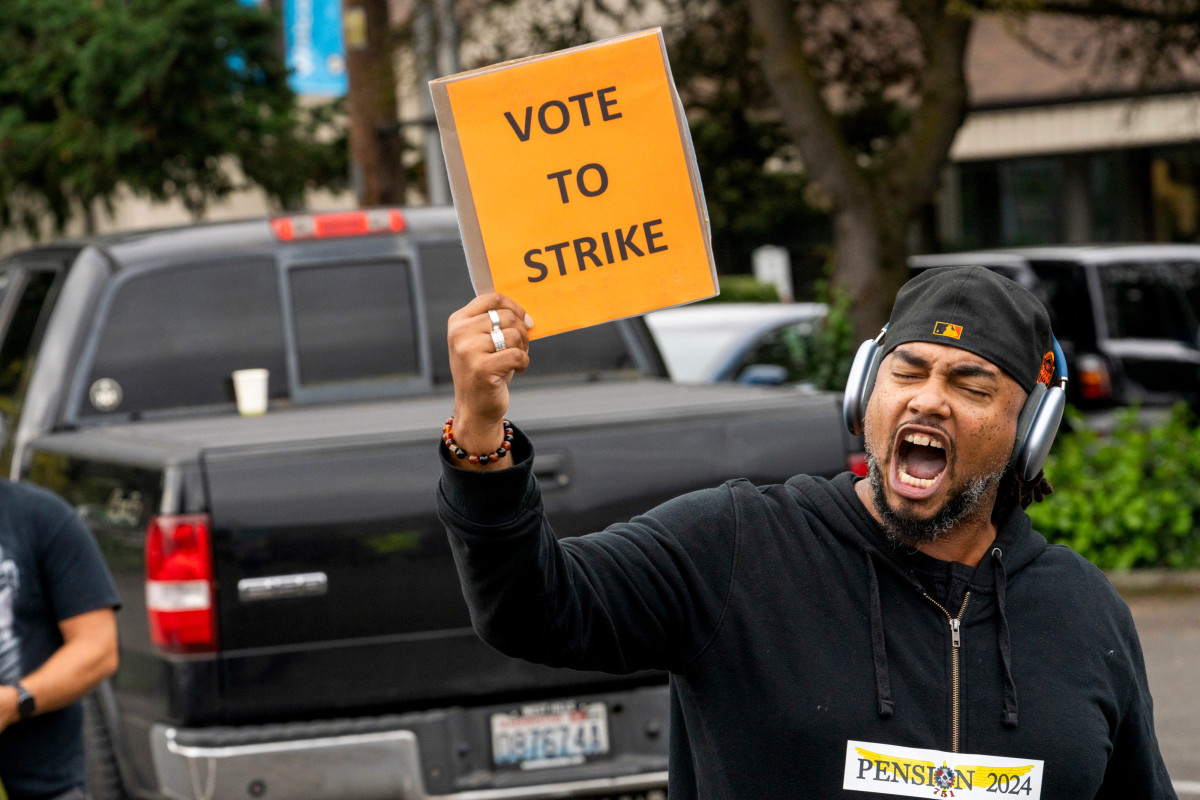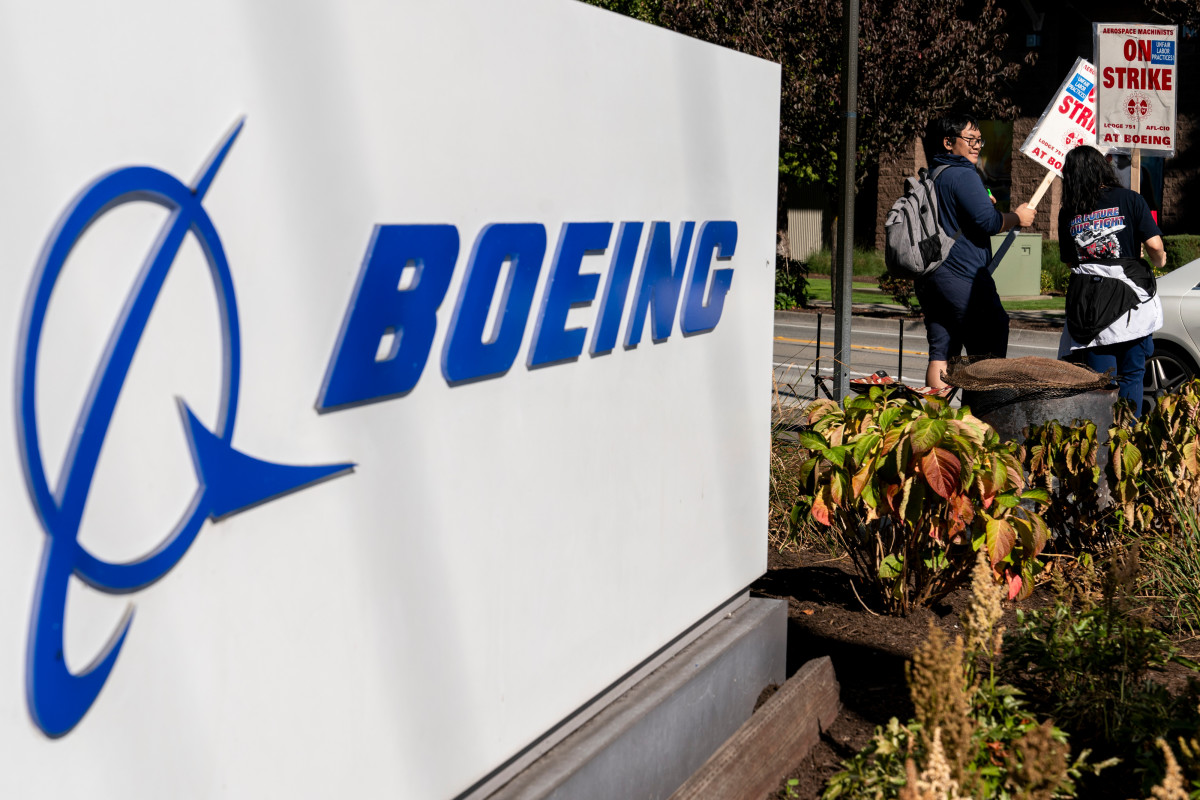
For once on Monday, Boeing was a star.
The aerospace giant has struggled with manufacturing problems, management turmoil, horrible financial results, and, since September, a crippling labor strike.
Boeing saw a little ray of sunshine on Oct. 21. Over the weekend, the International Association of Machinists and Aerospace Workers said its 33,000 members will vote on a new contract from Boeing (BA) , which is among the most iconic of U.S. companies.
Don't miss the move: Subscribe to TheStreet's free daily newsletter
The vote will come Oct. 23, and there's hope — but hardly any certainty — that the contract will pass. Indeed, some analysts think it won't pass because of the negative comments from Boeing workers that they've seen on social media.
Related: Goldman Sachs reveals long-term S&P 500 outlook
Nonetheless, Boeing shares were up 4.8% to $159.82 on Oct. 21, their highest close since Sept. 4. The stock was the top performer of stocks in the Dow Jones Industrial Average and third best among stocks in the Standard & Poor's 500 Index.
Boeing shares, however, are still down 38.6% on the year and more than 40% from their 52-week high reached in December 2023.
The union agreed early on Oct. 19 to put Boeing's latest proposal — its third in less than two months — to its membership, saying that it was "worthy of your consideration."
The strike began on Sept. 13 after 94% of union members rejected an offer supported by union management.
The union refused even to consider a second Boeing offer.
The new proposal calls for 35% salary increase over four years, up from 30% offered earlier by Boeing. It also boosts the ratification bonus to $7,000 from the previous $6,000 offer.
The one demand Boeing refused to consider was re-establishing its traditional pension plan.
Boeing has said that average annual pay for machinists is currently $75,608.
The strike by workers in Washington, Oregon, and California has halted production of Boeing 737s including the 737 Max, and 767s and 777s. Boeing is continuing to build 787 Dreamliners at a nonunion plant near Charleston, S.C.
The strike is costing Boeing an estimated $1 billion a month, and new CEO Kelly Ortberg is working to keep the company afloat.
Boeing is raising up to $25 billion through stock and debt offerings. It's arranging a $10 billion credit agreement with major lenders amid a production and regulatory crisis.

Analysts keep ratings intact but trim price targets
Analysts at JP Morgan, led by Seth Seifman, kept their rating on Boeing at overweight with a $195 price target. But the group noted the deal, if passed, will boost Boeing's costs by at least $1 billion a year.
More on Boeing
- Boeing makes a harsh decision to repair its finances amid strike
- Boeing Just Doesn't Fly With Me
- Boeing's tumultuous company history: 12 CEOs in 11 decades
Jefferies analyst Sheila Kahyaoglu put the cost increases at closer to $1.3 billion. She didn't offer a new price target. In September, Jefferies maintained a buy rating with a $270 price target.
Wells Fargo analyst Matthew Akers told Reuters he's not sure if the workers will ratify the contract. Wells Fargo has had an underweight rating on the stock and dropped its price target from $110 to $109.
Most analysts had been trimming price targets since the strike erupted, and, especially after Boeing's Oct. 11 announcement, it expects to report a loss of $9.77 a share in its third-quarter earnings report, due before U.S, markets open on Oct. 23.
Boeing has also announced it would lay off 10% of its worldwide workforce.
Boeing's gains came on a day when stocks moved lower.
The S&P 500 was off 0.1% to 5,854 after hitting a closing peak of 5,865 on Oct. 18. Dow fell 344 points to 42,932, also 0.1%. The blue-chip index also closed at a record high.
What happens if workers reject the deal
If the contract doesn't get approved, the crisis could become existential for the company and Ortberg. There's even talk the company may seek help in U.S. Bankruptcy Court.
But the stakes are much higher. Writing over the weekend, Wall Street Journal columnist Greg Ip noted the loss of either would have huge repercussions for the United States.
"Each supports a multilayered ecosystem of designers, workers, managers and suppliers. Once that ecosystem moves offshore, it is almost impossible to bring back.
Related: Veteran fund manager sees world of pain coming for stocks







